Eight GCSE maths questions that surprised exam boards
What makes a good (or bad) GCSE question?
10/12/2019
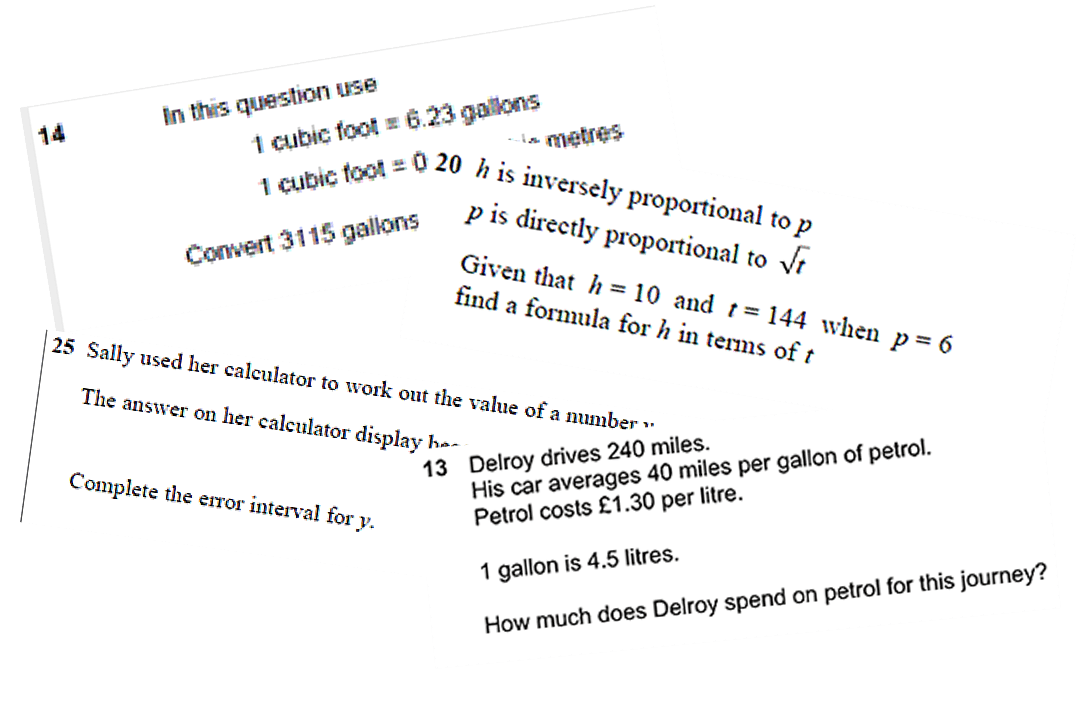
What makes a good (or bad) GCSE question? This might be on your mind as you mark Year 11 mocks. With a satisfied smile for those questions that really drew out what your students knew and allowed them to demonstrate their understanding. And with your head in your hands as you come across the question that they should have been able to answer but somehow just didn’t really see what it was getting at.
Back in September, we met with the three main awarding bodies in England (AQA, Edexcel and OCR) and asked them which questions pleased and disappointed them. You can hear the whole interview in our podcast or look at the questions that they highlighted below.
Edexcel
Graham Cumming from Edexcel said that he was pleasantly surprised by this question which he thought would be really difficult. In fact, around 25% of students got full marks:
(4 marks) Edexcel Paper 1 (non-calc) Higher Q20

A question that didn’t go well for both Foundation and Higher Edexcel students was one about truncation. ‘Students are used to rounding to one decimal place, but not truncation. It’s something new on the specification, and almost not noticed. I got the impression that students hadn’t seen a question like that before.’
Edexcel Paper 2 Foundation Q25, Higher Q6
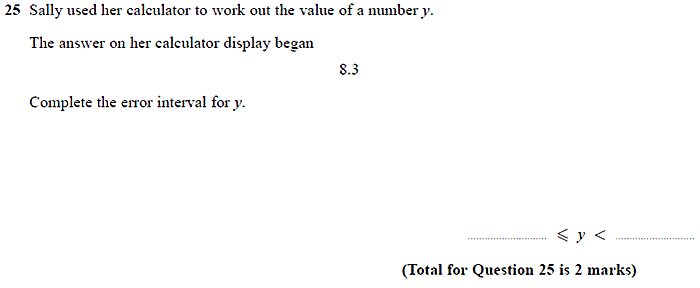
AQA
Andrew Taylor from AQA said, ‘The question that struck me most that was not done very well was a very-straightforward “draw a pie chart” question. I naively thought that this would be meat and drink to students, but it just wasn’t.’
AQA Paper 3 (Foundation) Q17b
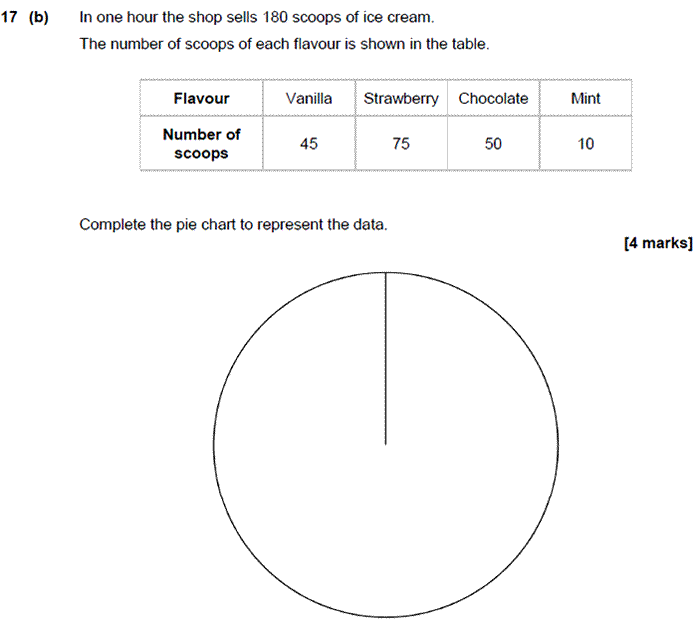
‘Something I’ve been going on about students struggling with for the past two years, I was pleasantly surprised by this year – and that’s conversions.’ This question involved a two-stage conversion, and students performed really well:
AQA Paper 3 (Foundation) Q14

OCR
OCR students at Foundation also did well at a conversion question:
(4 marks) OCR Paper 3 (Foundation) Q13
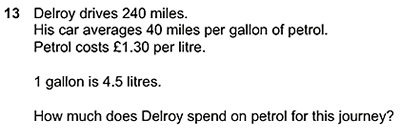
Though they struggled with a ratio question:
OCR Paper 3 Foundation Q15
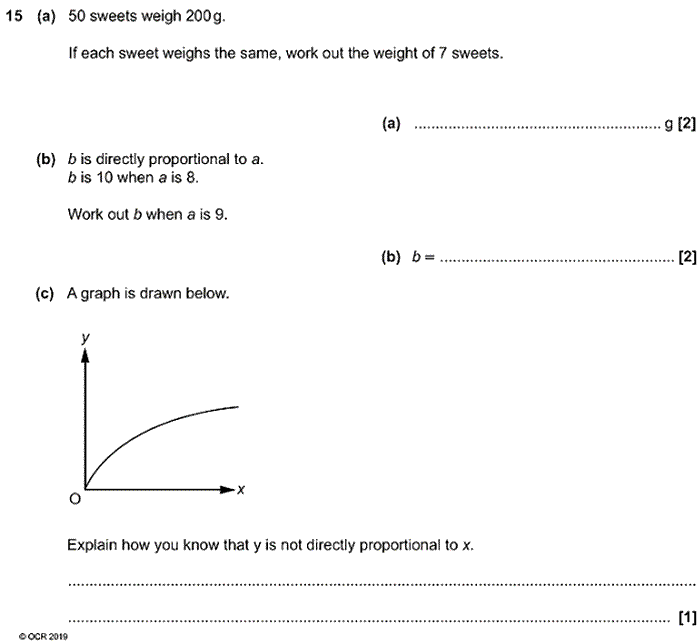
Neil Ogden (OCR) said, ‘At Higher tier, we were surprised that students didn’t do too well at interpreting a pie chart and then a line graph, even though it was an early question in the paper, so not a high demand question. These ‘Explain’ questions, where students have to write a wordy answer are always ones that they struggle with’.
OCR Paper 6 (Higher) Q3
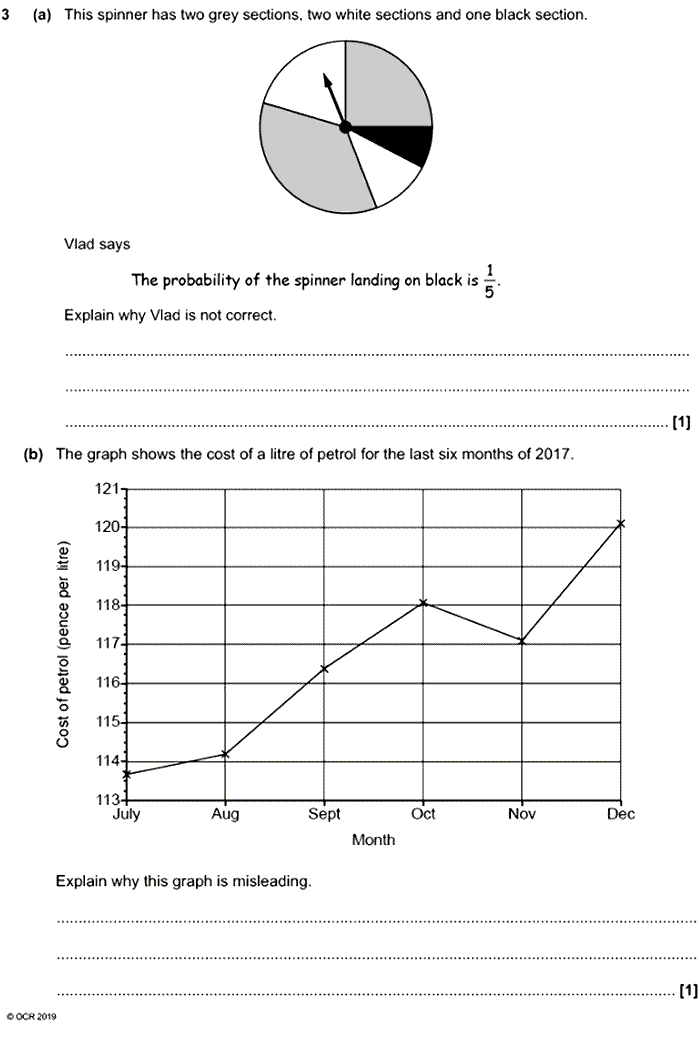
‘However, in the final question on the final Higher paper, when students are normally flagging, this year they did really well – they flew through it and picked up really good marks':
OCR Paper 6 (Higher) Q22
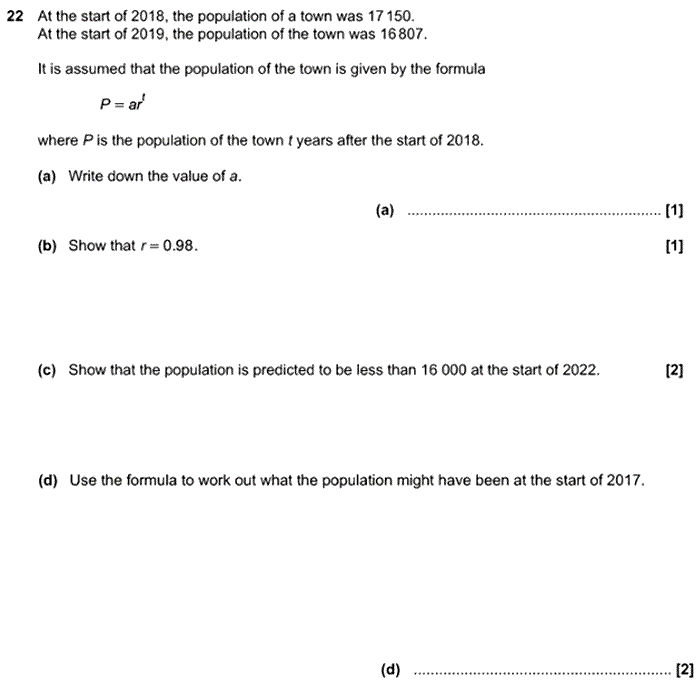
One thing that all the exam boards stress is that it is not possible to draw conclusions about a topic that students find difficult, from a couple of poorly done questions. In the 9-1 specification, questions often test more than one topic. And many other factors affect the difficulty of a question, such as: whether it is a problem-solving question; whether the context is familiar; whether it is a multi-step question; how much reading is required; the position of the question in the paper; the question that precedes it and more. Even an unfamiliar name can be distracting!
Did they have any more general pointers?
Neil (OCR) said:
The main strides that students could make is in getting the basic things right. Examiners reports show that students are making a few slip-ups on initial questions. Performance on the non-calculator paper did seem to be stronger than in the previous two years. Students seem to be getting more comfortable with working with the mathematics without a calculator.
Graham (Edexcel) added:
AO2 (reasoning) is the area that’s been found most challenging – it’s the ‘explain that’ questions. Anything that is new or tested in a slightly different way is still quite a challenge. We’re still looking for that resilience to try and write down something you can find out about a given question.
Andrew (AQA) added:
Questions requiring drawing skills – drawing graphs, drawing shapes, constructions – all seemed to be not massively well done this year. Questions that required students to create an algebraic expression from a situation, then manipulate it – at different levels of demand – were also not very well done.
<p>Podcast with the three exam board representatives</p>
<p>Why not have a listen to our podcast with the three exam board representatives who picked out the questions above. What more can they tell us about the third summer of the 9-1 specification? The podcast also reflects on the first summer of the new A level.</p>
Listen